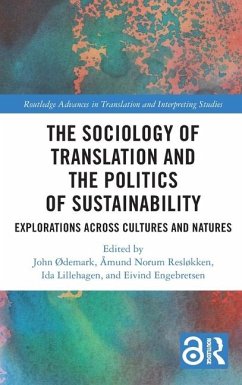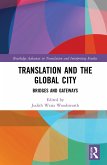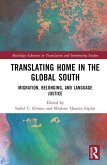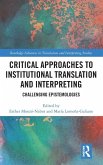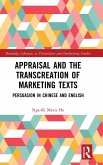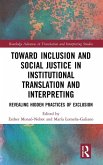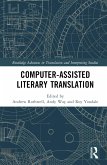This book uses sustainability to explore the interfaces between translation studies, the cultural history of knowledge, and Science and Technology studies (STS).
The volume examines various material, cultural and epistemic translation practices where sustainability serves as a boundary object between natural and cultural inquiry. By turning to the intellectual traditions that influenced but were left behind by STS and actor-network theory (ANT), we aim to challenge and expand the Sociology of Translation developed in ANT. Concepts such as 'inscription' (Derrida), 'actant', 'narrative' (Greimas), and 'world/worlding' (Heidegger, Spivak) were reemployed - translated - in the canonical STS-texts. What networks of meaning were left behind in this reemployment? The book showcases a combination of cultural and knowledge historical perspectives on the construction of the Sociology of Translation and practical experiments across the registers of nature and culture is novel. There have been brilliant individual attempts to realign the Sociology of Translation with narratives and modes of enunciation, but none has related the Sociology of Translation to the networks and traditions which enabled it but to which it erased its relations and debts.
This innovative work will appeal to scholars in translation studies, cultural studies, environmental humanities, medical humanities, and Science and Technology studies.
The Open Access version of this book, available at http://www.taylorfrancis.com, has been made available under a Creative Commons [Attribution-Non Commercial-No Derivatives (CC-BY-NC-ND)] 4.0 license.
The volume examines various material, cultural and epistemic translation practices where sustainability serves as a boundary object between natural and cultural inquiry. By turning to the intellectual traditions that influenced but were left behind by STS and actor-network theory (ANT), we aim to challenge and expand the Sociology of Translation developed in ANT. Concepts such as 'inscription' (Derrida), 'actant', 'narrative' (Greimas), and 'world/worlding' (Heidegger, Spivak) were reemployed - translated - in the canonical STS-texts. What networks of meaning were left behind in this reemployment? The book showcases a combination of cultural and knowledge historical perspectives on the construction of the Sociology of Translation and practical experiments across the registers of nature and culture is novel. There have been brilliant individual attempts to realign the Sociology of Translation with narratives and modes of enunciation, but none has related the Sociology of Translation to the networks and traditions which enabled it but to which it erased its relations and debts.
This innovative work will appeal to scholars in translation studies, cultural studies, environmental humanities, medical humanities, and Science and Technology studies.
The Open Access version of this book, available at http://www.taylorfrancis.com, has been made available under a Creative Commons [Attribution-Non Commercial-No Derivatives (CC-BY-NC-ND)] 4.0 license.

